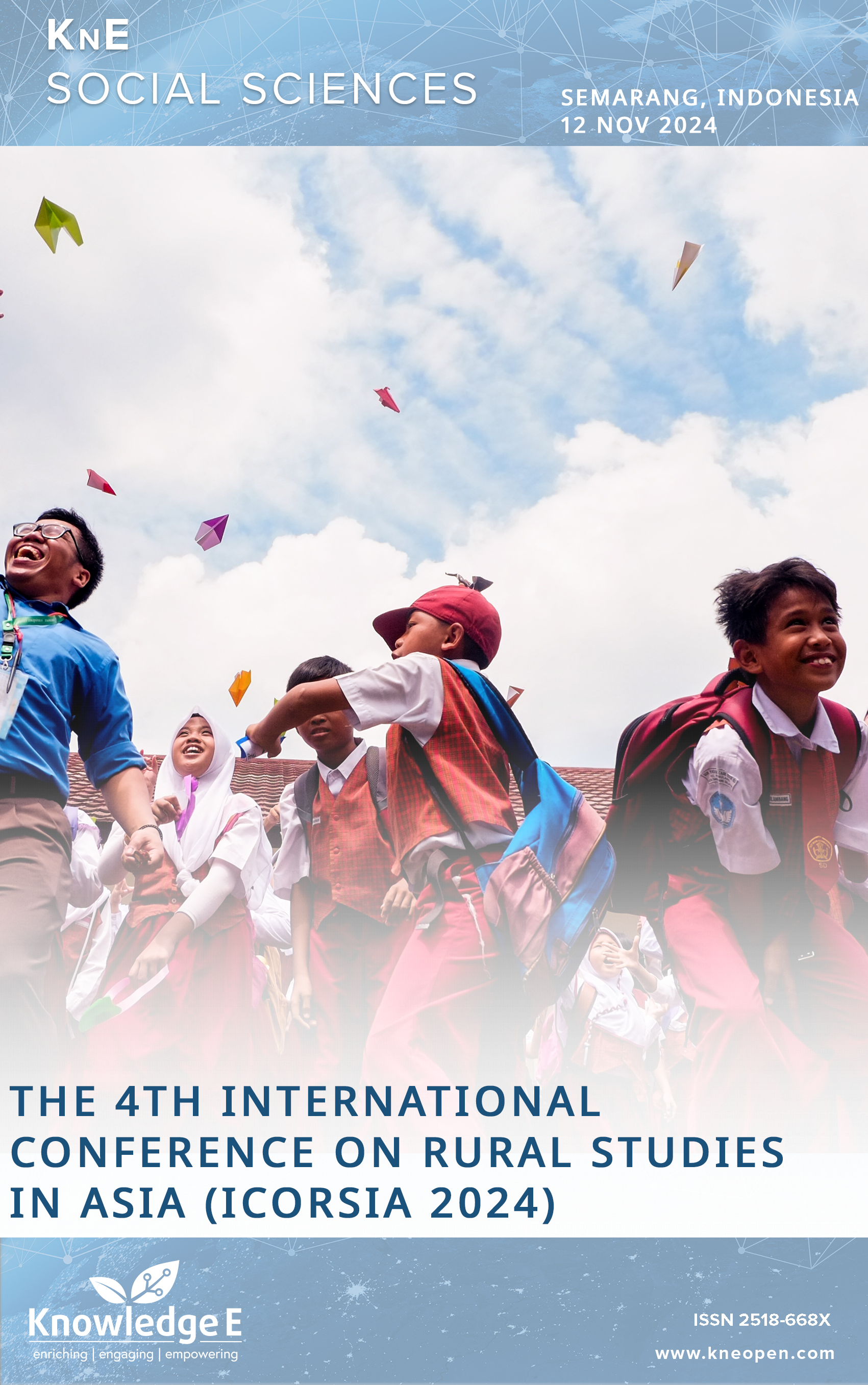Voices of Dissent: The Polemics of Islamic Thought in Gorontalo
DOI:
https://doi.org/10.18502/kss.v10i10.18685Keywords:
Islamic thought, polemics, NU, Muhammadiyah, Jama’ah Tabligh, Wahdah Islamiyah, GorontaloAbstract
This study explores the polemic of Islamic thought in Gorontalo, focusing on the voices of dissent and the dynamics that arise from differing perspectives in society. The aim is to understand how these differences influence religious practices and reflect broader debates on contemporary issues within a local context. Using an ethnographic approach, the research draws on participant observation and in-depth interviews with clerics and leaders from key Islamic organizations such as Nahdlatul Ulama (NU), Muhammadiyah, Jama’ah Tabligh, and Wahdah Islamiyah. Observations were conducted in mosques, community centers, and religious gatherings. The results show that differences of opinion in Islamic thought in Gorontalo extend beyond traditional fiqh debates, encompassing deeper ideological issues, including differing views on state ideology and religious authority. While the diversity of thought generates some tension, it also fosters opportunities for dialogue and critical reflection. Many community members value this plurality and seek to preserve social harmony despite theological differences. However, there are also concerns about the influence of extremism that can threaten social stability. This research contributes to a deeper understanding of how Islamic thought evolves in regional contexts and highlights the role of constructive dialogue in navigating religious diversity.
References
Amiruddin MH. Isu Terorisme dan Respon Aktivis Muda Aceh. Walisongo: Jurnal Penelitian Sosial Keagamaan. 2014;22(1):25–38.
Azra A. Pergolakan Politik Islam: dari Fundamentalisme, Modernisme, hingga Post- Modernisme. Jakarta: Paramadina; 1996.
Baihaki ES. Konflik Internal Umat Islam: Antara Warisan Sejarah dan Harapan di Masa Depan. FIKRAH. 2018;6(1):49–72.
Beyer P. Religion and Globalization. Sage publications; 1994.
Bruinessen Mv. Rakyat Kecil, Islam dan Politik, editor dan penerjemah Farid Wajidi. Yogyakarta: Bentang Budaya;1999.
Choueiri Y. Islam Garis Keras; Melacak Akar Gerakan Fundamentalisme. Yogyakarta: Qonun; 2003.
Fajarini U. Potret Konflik Keagamaan Masyarakat Tangerang Banten dan Resolusi Konflik Berbasis Multikulturalisme Dalam Islam. Al-Tahrir. 2014;14(2):343–61.
Fealy G. dan Hooker, V. Voices of Islam in Southeast Asia A Contemporary Sourcebook. Singapore: ISEAS;2006
Geertz C (Banton M, editor). “Religion as a Cultural System,” in Anthropological Approaches to the Study of Religion. Tavistock; 1966.
Huda K. Fenomena Pergeseran Konflik Pemikiran Islam Dari Tradision- alis Vs Modernis Ke Fundamentalis Vs Liberalis. Islamica. 2009;3(2), 23. https://doi.org/https://doi.org/10.15642/islamica.2009.3.2.20-42
Khatib L. Communicating Islamic Fundamentalism as a Global Citizenship. J Commun Inq. 2003;27(4):389–409. Available from: https://doi.org/https://doi.org/10.1177/0196859903255776
Mahendra Y. Modernisme dan Fundamentalisme dalam Politik Islam: Perbandingan Partai Masyumi (Indonesia) dan Jama’at-i-Islami (Pakistan). Jakarta: Paramadina; 1999.
Nashir H. Purifikasi Islam dalam Gerakan Padri di Minanglabau. Jurnal Ilmu-Ilmu Sosial. 2008;31(69):220–30.
Nathan KS. dan Kamali, M. Islam in Southeast Asia, Political, Social and Strategic Challenges for the 21st Century. Singapore: ISEAS;2005.
Nuh M. Islam, Nilai Sosial, Sikap Keberagamaan Di Tengah Problem Kebangsaan. POLITIKA. 2014;5(2), 5. https://doi.org/https://doi.org/10.14710/politika.5.2.2014.60-65
Nurdianto SA, Joebagio HH, Djono D. Kajian Poskolonial Gerakan Pemikiran Dan Sikap Ulama Pesantren Tegalsari Dalam Pusaran Konflik Multidimensional Di Jawa (1742-1862). THEOLOGIA. 2018;29(1):1–26.
Pomalingo S. Tuhan Agamamu Apa? Kritik atas Nalar Pemahaman Keagamaan Kita. Yogyakarta: Atap Buku; 2019.
Saleh R. S. N. A. N. P. C. P. D. Pembentukan Identitas Keagamaan Mahasiswi Bercadar di Perguruan Tinggi Agama Islam di Gorontalo. Madani. 2019;1(2), 110– 122. https://journal.iaingorontalo.ac.id/index.php/md/article/view/915
Rahardjo MD. Agama Di Ruang Publik Politik. SOCIETAS DEI. 2015;2(1), 95–126. https://doi.org/https://doi.org/10.33550/sd.v2i1.57
Rasyidah. Potensi Konflik Dan Masa Depan Islam Di Indonesia; (Kajian Terhadap Tantangan Dakwah). Al-Bayan. 2014;21( 30), 14. https://doi.org/http://dx.doi.org/10.22373/albayan.v20i30.123
Robertson R. Agama dalam Analisa dan Interpretasi Sosiologis. Rajawali Pers; 1993.
Roy O. Genealogi Islam Radikal. Yogyakarta: Genta Press; 2005.
Rusli. Max Weber: Etika Keagamaan, Kharisma dan Kepemimpinan Kharismatik. Religi. 2005;IV (2), 202–219. https://doi.org/https://doi.org/10.14421/religijurnalstudiagama-ag
Subair M. Ulama Kharismatik Kh. Hamrain Kau Anugrah Atas Ilmu dan Amalnya. Al-Qalam. 2015;21(1), 45–54. https://doi.org/http://dx.doi.org/10.31969/alq.v21i1.209
Suhelmi A. Polemik Negara Islam: Soekarno versus Natsir. Teraju; 2002.
Thaib, S. Demokrasi Menurut Hizbut Tahrir Indonesia; Kajian tentang Pemikiran dan Gerakan Aktivis Hizbut Tahrir Indonesia Kota Gorontalo; (2014).
Published
How to Cite
Issue
Section
License
Copyright (c) 2025 KnE Social Sciences

This work is licensed under a Creative Commons Attribution 4.0 International License.

